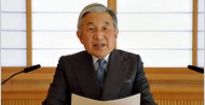Emperor 'Worried' About Nuke Crisis
Emperor Akihito of Japan, in an unprecedented television address to the nation, said on Wednesday that he was “deeply worried” about the ongoing nuclear crisis at several stricken reactors and asked for people to act with compassion “to overcome these difficult times.”
An official with the Imperial Household Agency said that Akihito had never before delivered a nationally televised address of any kind, not even in the aftermath of the Kobe earthquake in 1995 that killed more than 6,000 people. The address was videotaped.
The remarks on Wednesday afternoon were the first public comments from Akihito, 77, since a devastating earthquake and tsunami struck northern Japan last Friday, and they underscored the urgency of multiple crises confronting the country. Akihito expressed his concern for the survivors of the disaster and thanked the rescue teams working under difficult conditions in the north.
A huge relief operation continued as hundreds of thousands of people prepared to spend a sixth night in temporary shelters amid freezing temperatures.
Before the emperor’s address, the crisis took another turn for the worse. The authorities said a containment vessel in a second reactor unit at the stricken Fukushima Daiichi plant in northeastern Japan might have ruptured and appeared to be releasing radioactive steam. That would be the second vessel to be compromised in two days.
A spike in radiation levels at the plant suspended some critical efforts to pump water into several reactors to keep them cool. Earlier in the morning, the company that runs the plant reported that a fire was burning at a different reactor.
Japan’s neighbors watched the nuclear crisis anxiously.
China on Wednesday suspended approval for all nuclear power plants, even those in the most preliminary stages, while it revises safety standards. It also required safety checks at all its existing plants, according to a statement released by the State Council.
“We must fully grasp the importance and urgency of nuclear safety, and development of nuclear power must make safety the top priority,” the government said in a statement.
Beijing also said that levels of radiation remained normal in China and that experts have concluded that the wind will scatter the radiation from Japan’s stricken Daichi nuclear complex over the Pacific Ocean, away from China. “This will not affect the health of our public,” the statement said.
Various nations across East Asia have said they would step up inspections of food imported from Japan.
Click here to read more.


